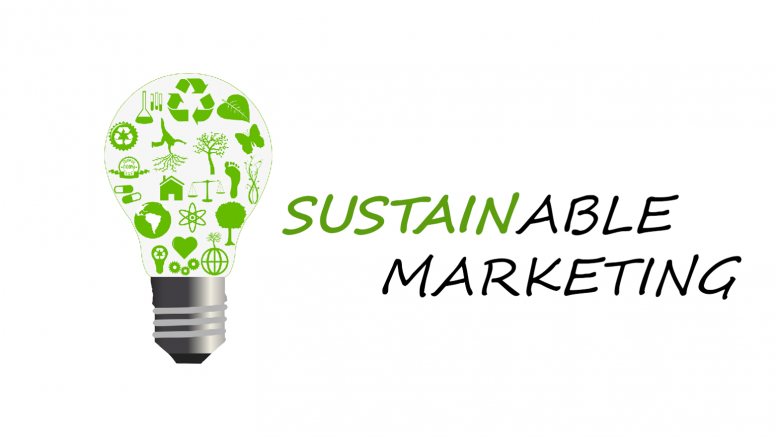Sustainability marketing, also known as green marketing, is an approach that focuses on promoting products and services with environmental and social responsibility in mind. The goal of sustainability marketing is to communicate to consumers that a company’s offerings are produced, packaged, and distributed in ways that minimise their negative impact on the environment and society. This type of marketing aims to appeal to environmentally conscious consumers and build a positive brand image associated with ethical and sustainable practices.
Key elements of sustainability marketing include:
Environmental Responsibility: Highlighting eco-friendly practices in product design, manufacturing, and disposal. This may involve using recycled materials, reducing energy consumption, and minimising waste. I remember one of the ways that a US based laboratory company reduced its environmental impact was by changing the type of gloves they used. This reduced their carbon footprint by half!
Social Responsibility: Emphasising fair labor practices, ethical sourcing, and contributions to local communities. This aspect of sustainability marketing aims to show that a company is committed to treating its employees and suppliers ethically. Giving back to the communities that a company operates in is the best kind of social commitment. It helps build trust locally.
Transparency: Providing clear and accurate information about a company’s sustainability efforts. Transparency builds trust with consumers who are increasingly interested in understanding the environmental and social impact of the products they buy.
Certifications and Labels: Displaying relevant certifications and eco-labels, such as USDA Organic, Fair Trade, or Energy Star, to signal compliance with recognised sustainability standards.
Education and Awareness: Educating consumers about the environmental and social issues addressed by the company and how their purchasing decisions can contribute to positive change. It is now evident that GenZ cares about the environment more than any other generation has. Companies that are genuinely sustainable will have an edge over companies that attempt ‘greenwashing’.
Innovation: Showcasing innovative and sustainable product features that set the company apart in the market.
Sustainability marketing has become more important as consumers and businesses alike are placing increased emphasis on environmental and social responsibility. However, it’s crucial for companies to ensure that their sustainability claims are authentic and backed by meaningful actions to avoid greenwashing—the misleading use of environmental claims to enhance a brand’s image without substantial efforts toward sustainability.
Several companies have excelled in sustainability marketing by integrating eco-friendly practices into their products, promoting environmental and social responsibility, and effectively communicating their efforts to consumers. Here are some examples:
Patagonia: Patagonia is a well-known outdoor clothing and gear company that has been a pioneer in sustainability marketing. They actively promote fair labor practices, use recycled materials, and encourage customers to repair and recycle their products. Their “Don’t Buy This Jacket” campaign urged consumers to consider the environmental impact of their purchases.
Tesla: Tesla, an electric car manufacturer, has successfully marketed its vehicles as a sustainable alternative to traditional gasoline-powered cars. The company emphasises the environmental benefits of electric vehicles, such as reduced carbon emissions and decreased dependence on fossil fuels. Electric vehicles are the future in a world where the threat of climate change is rapidly increasing day by day. Tesla has successfully paved way for a cleaner alternative. These kind of companies are only made once in a while that changes behaviour pattern of people across the globe. They set the trend!
Unilever: Unilever, a consumer goods company, has made sustainability a core part of its business strategy. Their Sustainable Living Plan focuses on reducing environmental impact, improving health and well-being, and enhancing livelihoods. Brands like Dove and Ben & Jerry’s under the Unilever umbrella have incorporated sustainability into their marketing messages.
IKEA: IKEA, a global furniture retailer, has committed to becoming a circular and climate-positive business. They emphasise sustainable sourcing of materials, energy efficiency, and recycling initiatives. IKEA’s “People and Planet Positive” strategy communicates its dedication to environmental and social responsibility.
TOMS: Toms is a shoe company that operates on a “One for One” model, donating a pair of shoes to a child in need for every pair sold. This social responsibility initiative is a central part of Toms’ marketing strategy and has resonated well with socially conscious consumers.
Ecover: Ecover, a company that produces ecological cleaning products, has successfully marketed its products as environmentally friendly alternatives to traditional cleaning products. They use plant-based ingredients and focus on biodegradability and minimal environmental impact.
The Body Shop: The Body Shop, a cosmetics and skincare company, has long been committed to cruelty-free and ethically sourced products. Their marketing emphasises these values, promoting products that are not tested on animals and containing natural ingredients sourced responsibly.
These examples showcase how companies across various industries can effectively integrate sustainability into their marketing strategies, appealing to consumers who prioritise ethical and environmentally conscious choices. Successful sustainability marketing often involves a combination of genuine commitment to sustainability practices, transparent communication, and engaging storytelling.
The views and opinions published here belong to the author and do not necessarily reflect the views and opinions of the publisher.



Be the first to comment on "‘Show, Don’t Tell’ should be the mantra for Sustainable Marketing"